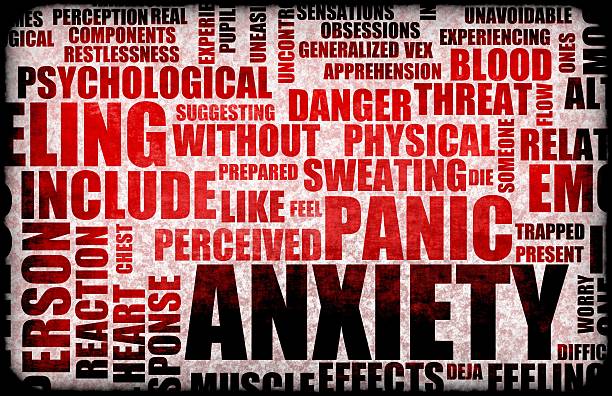Table of Contents
TogglePanic attacks and anxiety are closely linked, but they’re not the same thing.
Many people with panic disorder also suffer from severe anxiety, and vice versa. People with anxiety disorders may experience panic attacks or symptoms of panic disorder. Mental health professionals debate the interaction between these disorders. However, understanding panic attacks and anxiety can provide insight into your mental state.
Panic and anxiety attacks aren’t the same thing
Anxiety attack: This is a sudden, unexpected feeling of intense fear or dread that can be accompanied by physical symptoms such as trembling, sweating, and difficulty breathing. It’s often triggered by something that happens at work or home like making an unexpected phone call or having a nightmare about your boss.
Panic attacks: These are more persistent feelings of fear; they’re not necessarily related to what happened before but rather occur suddenly in response to being alone somewhere unfamiliar (e.g., public transportation). You feel like you might pass out from fright and may even feel paralyzed with fear—but then usually feel better after a few minutes of breathing deeply into your belly until you calm down again.
A panic disorder can cause anxiety
- Panic disorder is a different thing from anxiety.
- Panic disorder is an anxiety disorder, whereas anxiety is not.
- Panic attacks are a symptom of panic disorder, but they can also be symptoms of other mental health disorders like depression or bipolar disorder.
Anxiety can be a symptom of depression
Anxiety, a common symptom of depression, can result from various mental illnesses. People with post-traumatic stress disorder (PTSD) often receive diagnoses of both anxiety and depression. Treating both conditions together is common due to the overlap of symptoms.
Depression is a serious condition that affects millions of Americans every year; it’s characterized by feelings of sadness or hopelessness for at least two weeks. If left untreated, depression can lead to severe physical health problems like heart disease and diabetes; it also increases your risk for suicide attempts. Fortunately, there are effective treatments available — including medication — but if you think you might have mild or moderate levels then talk to your doctor first before making any decisions about treatment options such as therapy sessions or self-help books like Cognitive Behavioral Therapy (CBT).
Anxiety and depression are linked to low levels of certain brain chemicals
Anxiety and depression are linked to low levels of certain brain chemicals called neurotransmitters. These chemicals help relay messages between the nervous system and other parts of the body, but they also play a role in mood disorders like anxiety and depression.
One neurotransmitter you may be familiar with is serotonin—the “feel-good” chemical that helps control your moods. When serotonin levels are high, you feel calm; when they’re low (or depleted), you experience symptoms like anxiety and depression.
The amygdala may have something to do with anxiety.
The amygdala is an almond-shaped area in the brain that plays a role in emotional processing. It’s part of an “amygdaloid complex”, which also includes other parts of your limbic system including:
- The hippocampus (which helps you remember things)
- The thalamus (which relays information from one part of your brain to another)
- The hypothalamus (which controls many bodily functions)
- And so on
Anxiety disorders are treatable
You may be able to manage your anxiety by taking medication and/or seeing a psychologist or psychiatrist. You can also talk to a therapist, counselor, or social worker if you feel comfortable doing so. If you’re experiencing panic attacks regularly, it would be helpful for you to tell the person who is treating your anxiety that this is happening so that they can work with you more effectively on reducing the frequency of attacks.
It’s important to know what kind of attack you’re having so you can get the right treatment for it
Panic attacks are a symptom of anxiety disorders, which are treatable. If you have an anxiety disorder, it’s important to know the kind of attack you’re having so that you can get the right treatment for it.
Anxiety disorders include panic disorder and other types of generalized anxiety disorder (GAD). Symptoms include feeling intense fear or worry that something bad will happen; feeling anxiety without any obvious reason; and other physical symptoms such as sweating or trembling.
You may be able to find help from:
- Your doctor or therapist who specializes in treating mental health conditions like anxiety disorders
- Family members who have been through similar experiences themselves
Conclusion
Anxiety and panic attacks can be extremely debilitating and affect your daily life in ways you may not recognize. The most important thing to remember is that these symptoms are not your fault and it is important to seek help from a doctor or therapist. They will help you understand what is happening so you can determine how best to treat yourself.












